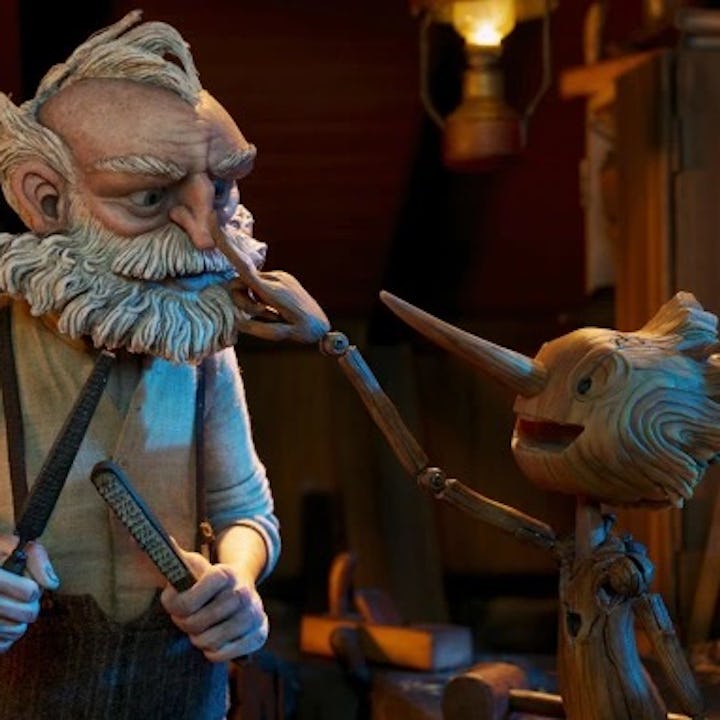‘Pinocchio’ Director Guillermo del Toro Argues That Animation Isn't Just For Kids
The Academy Award-winning director also explained how fatherhood is a prominent theme in all of his films.

Did you know that there are two Pinocchio movies coming out this year? One is the Disney live action remake starring Tom Hanks as Geppetto. The other is Guillermo del Toro’s Pinocchio, a stop-motion animated feature that is much darker than its animated medium might suggest.
Del Toro, who also directed stunning hits like Pan’s Labyrinth and The Shape of Water, talked about how animation is not strictly for kids, and why it is sometimes the ultimate medium to convey complex stories about much more adult topics.
"You know we had a long, long, long road. Many, many hours and years of work of dozens, then hundreds, then thousands of artists. We wanted to show that animation is not a genre for kids," del Toro explained to Discussing Film of the feature’s over decade-long development and production. “It's a medium. Animation is film. Animation is art, and it can tell stories that are gorgeous and complex, and that feel handmade by humans for humans."
Del Toro’s take on Pinocchio doesn’t have a rating yet, but Netflix’s synopsis suggests it’s definitely not one for the younger ones: "A darker version of the classic children's fairy tale of a wooden puppet that transforms into a real living boy." For example, unlike the Disney version, del Toro’s rendition of Pinocchio is set in Mussolini’s fascist Italy — much like how his film The Devil’s Backbone was set during the Spanish Civil War and Pan’s Labyrinth was set in the immediate aftermath during the Francoist dictatorship of Spain. Despite their heavy topics, all films feature a child lead and a theme of fatherhood.
“The three movies are to do with childhood coming up against something that has to do with war and violence,” he explains. “I think for me, it’s always been the movies about fatherhood and being a father or being a son, and I think in those iterations, fascism seems to be concerned with a father figure of a different kind, and the desire to deliver ourselves to a father that unifies thought. So I think it’s both a background and it is something interesting thematically.”
Del Toro’s also interested in giving viewers a more liberating lesson from the classic story of a wooden boy who comes to life and gets to stay human if he is obedient. “Because to me, the interesting thing was: Can I make a Pinocchio that celebrates disobedience as opposed to celebrating obedience? Can I make a Pinocchio in which he doesn’t have to turn into a real boy at the end because he was obedient?” del Toro explained to The Hollywood Reporter.
While del Toro’s interpretation of Pinocchio might be too scary for kids to watch once it hits select theaters in November and Netflix on December 9, it might be a great watch for those still unaware of the negative repercussions of an authoritarian parenting style and overall mindset. Watch the teaser for Guillermo del Toro’s Pinocchio below: